On 10 October 1971, Muhammad Ali took to the stage in front of a full house at LSE’s Old Theatre. His trip to London was part of a European and the Middle Eastern boxing tour, but he spoke to the audience at LSE about boxing, Black Power and politics.
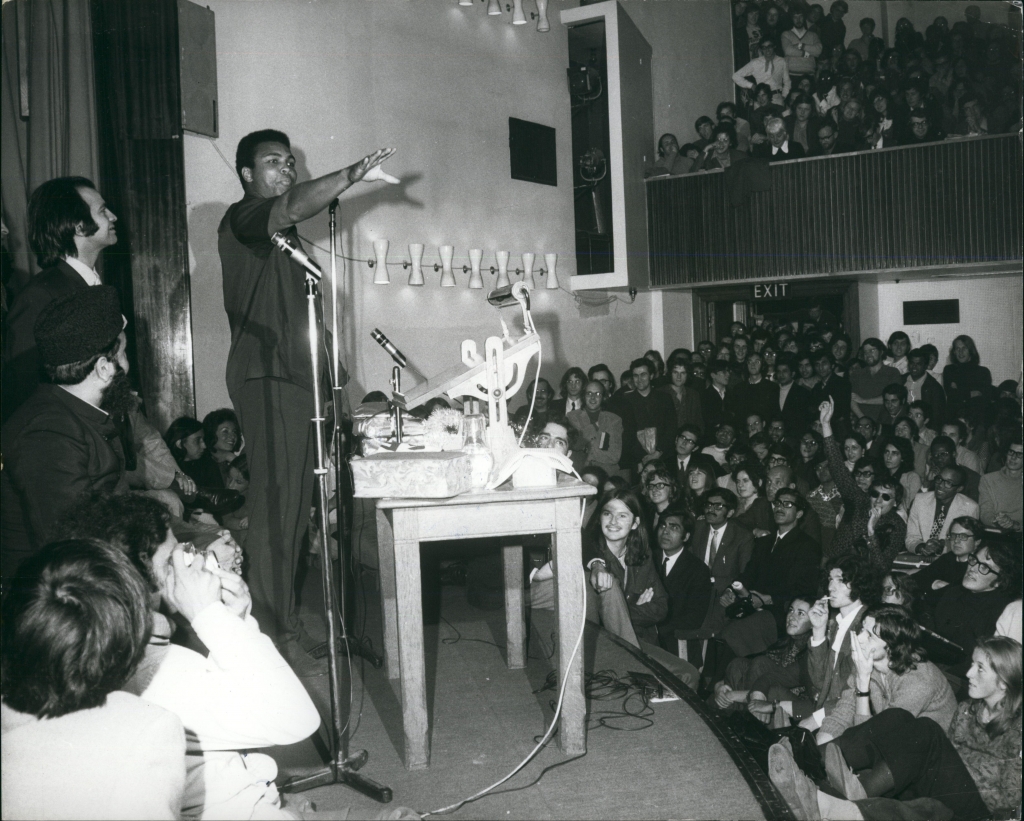
This issue of the Beaver, the LSE Students’ Union newspaper, is dated 28 October 1971 and features a review of the talk on the front and back pages. Back copies of the Beaver are available in LSE’s Digital Library.
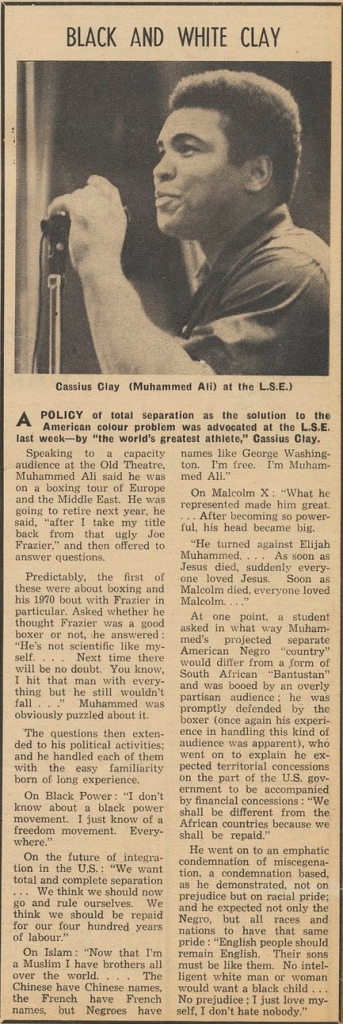
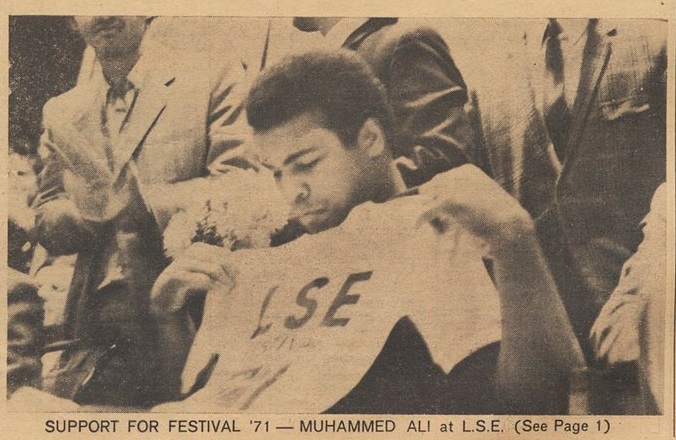
Were you in the audience at the Old Theatre for Muhammad Ali’s visit? Did you produce this report for the Beaver? Or were you involved in LSE Festival ’71? We’d love to hear from you in the comments box below.



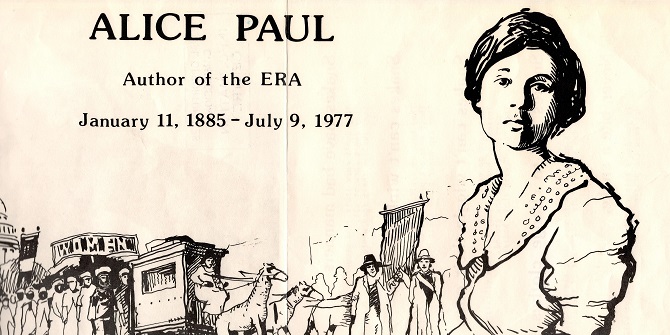
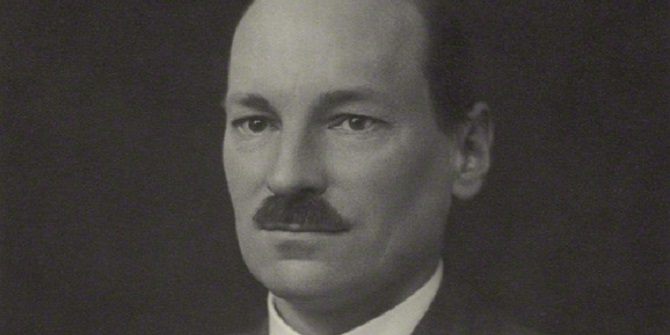
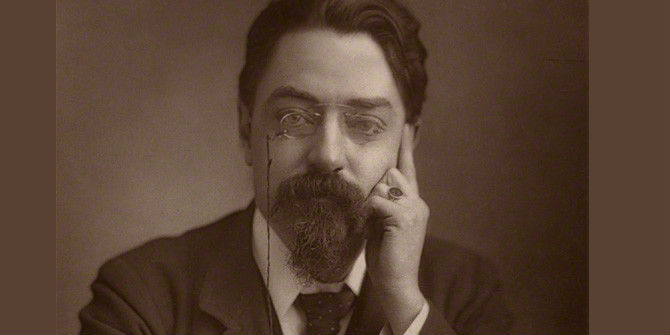
I was in that audience on a day I will never forget. Ali’s persona dominated and charmed those present though his views on racial segregation were not so popular. I recall he offered a fistful of cash to anyone who could cite an example of interbreeding from the animal kingdom. I was tempted to call out Labradors and Alsatians but my nerve failed me. Being in the same room as the greatest sportsman of all time and the greatest personality of the 20th century was a joy and a privilege
I was in the audience, I remember his massive presence filling the stage.. Some of his views were very unpalatable, but he was my boxing hero and I was star struck.
I was also in the audience. He was a remarkable speaker. Never used notes, just spoke from the heart. As he left coming out of the main doors of the old theatre I was surprised at just how enormous he was. I thrust a hand out and he grasped it shaking my hand. Great moment.
I still remember that day when on my invitation he came to LSE ( I brought him from the hotel) to make the speech. I went to the hotel to get him with my younger brother Ijaz Hashmi. I remember him telling me – you have to drag me to the stag and if i am lost in the crowd I will not be able to reach.
I can be seen in the first picture standing besides Muhammad Ali in black suit. I still remember every word he stated in the speech. He was a remarkable person. Such a remarkable legend.
Hi Afzaal, what an amazing story. I am a researcher at Manchester Metropolitan University, and I have just started a project documenting Muhammad Ali’s visits to the UK. I am particularly interested in hearing from the perspectives of people who met Muhammad, or who were heavily influenced by Muhammad. Muhammad’s visit to the LSE is a great story. Would it be possible to get in touch with you at all to speak more about this? My email is moseebkhan@gmail.com – if you are interested and could send me an email about this, that would be brilliant.
Dear Mr Hashmi and Mr Khan,
My name is Zeeshan and I had heard this story from my friends father Mr Nawabzada Ghazanfar Gul. He can be seen in the photograph sitting on the stage behind Mr Ali.
I believe along with Mr Hashmi, he was also instrumental in inviting Mr Muhammed Ali to come visit LSE that day.
I am sharing his email address over here so you may contact him if you please.
ghazanfarali_gul@yahoo.com.
Regards
I was in the audience that day. His visit was eagerly anticipated by everyone – not least me – and from memory not only was the Old Theatre full, but there was a relay to the New Theatre, and I think there were some additional relays such was the popularity of the visit.
It was not long after he had changed his name as part of adopting some pretty radical views. He came on stage and advocated what was effectively apartheid – a completely separate area within the USA for black people to live.
Not surprisingly this went down like a lead balloon with the audience, nearly 100% of whom were anti-apartheid, and many of whom had been protesters against the 1970 Springbok tour only the year before. Apparently this reaction also occurred in several other universities across Europe at which he spoke.
Ali was a very likeable and intelligent man, and it is extremely interesting and comforting that he went back to the USA, reflected on his reception in Europe and came round to a very different mindset – a story that should be made known to every advocate of “no-platforming”.
I was in the audience. I agree with the other comments. The audience did not accept many of his views but loved him. Today he would probably be banned for his comments- what we would have missed. For me it was a real highlight at LSE. His charisma was immense. Although I was in the balcony when he swung his arms you almost ducked.
I have checked the BBC web site and his famous first interview with Parkinson was on his the 17th October 1971. My recollection was that his visit was immediately after the Parkinson show but the date given here is the 10th which was a Sunday. That can’t be right.
We were upstairs in the Refectory having something to and someone came in and said Mohamed Ali was going to speak in the Old Theatre downstairs. At first no one believed it. It was a joke but he persisted and so we headed down. We were in the balcony when he came on stage. He was the biggest guy I had ever seen. A huge presence. He talked without notes about his Islamic beliefs and advocated racial separation. He then recited a long poem he had written about the Attica prison riots. He then said he would take questions and the Chair of the Islamic Society asked that the questions were about his religion. Almost immediately the questions turned to boxing and someone asked “Why did you let Joe Frazier beat you?”. He sort of laughed it off. At the end as things were winding up Charlie Hope, a third year from Bury, Manchester, draped the LSE Festival t-shirt over him and that was when the picture was taken. The next summer in 1972 Charlie and I went to America together on a BUNACAMP trip. It was a very memorable year.
I was there too. Ali read – without notes – his poem about the Attica Prison riot. Astonishing. And it was Jon Blair- as I recall – who challenged Ali’s black separism , as advocated by the Nation of Islam. A hugely important figure of the 20th century for his sporting and political ‘prowess’.
He is the legend and my insipiration. I am a boxer and he is the idol for me. I would say he was faster then the speed of light.
I had heard about this story from my friends father Mr Nawabzada Ghazanfar Ali Gul. He can be seen in the photograph sitting behind Muhammed Ali on the stage. He is the one with the beard.
The way Muhammed Ali was invited to the event by the students randomly at a coffee in Lancaster Gate able Muhammed Ali kept his word to the students is an epic tale of it own.
I was Secretary LSE Islamic Society then. I arranged this visit. I met Mohammad Ali in Royal Lancaster Hotel and invited him to LSE on behalf of the Islamic Society. He was going back to America and promised me that he would visit when he came back after two days. He kept his promise and I went to his hotel with my friend Afzaal Hashmi to drive him to LSE to a tumulus welcome . No one at LSE believed he would come till he was there. It was a wonderful occasion the made me proud. I can be seen sitting on the stage wearing Jinnah cap . This was a moment of my lifetime.. He did not charge us any fee for the lecture and that was a great honour for me and the Islamic Society.
Mohammad Ali visited LSE on the request of the LSE Islamic Society through Ghazanfar Ali Gul, Secretary of the society.
Islamic Society should have been mentioned here.